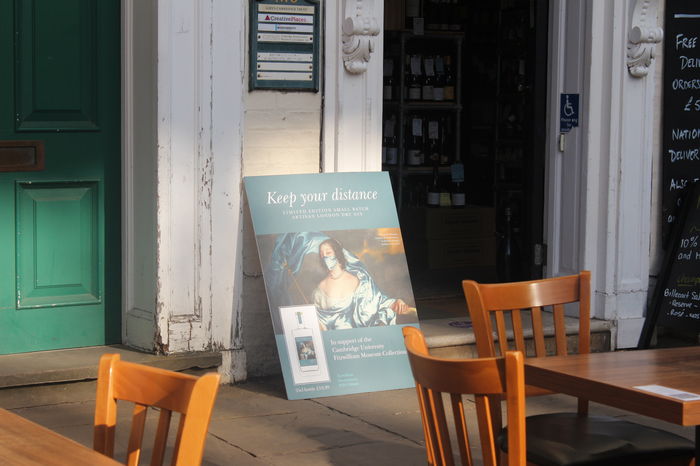Cambridge professor calls for delay in easing COVID-19 restrictions
Professor Ravindra Gupta warned that ‘an excess in meeting’ from 21 June will lead to the spread of the Delta variant

University of Cambridge professor Ravindra Gupta is among scientists calling for a delay in the easing of coronavirus restrictions currently set to take place on June 21st at the earliest.
Gupta, a professor of clinical microbiology at the Cambridge Institute of Therapeutic Immunology and Infectious Disease, made the suggestion in the light of growing concerns around the Delta variant of the virus.
Last week (03/06), Public Health England identified this variant as the dominant strain in Britain, revealing a 79% increase in cases over the last week.
The Delta variant is thought to possess a moderately increased transmissibility compared with other strains of coronavirus and concerns have been raised as to whether the existing vaccines will prove effective.
In the House of Commons earlier today (07/06), Health Secretary Matt Hancock said that a review of weather lockdown easing would go ahead on June 21st would take place on June 14th.
Hancock has previously said the government is “absolutely open” to delaying the final stage of the roadmap, and added in his statement earlier today that it is currently too early to make a decision on a potential delay: awaiting further data will allow for a “more refined more careful decision,” he added.
Professor Gupta stated in an interview with The Sun newspaper, that a delay of “a few weeks” would enable scientists to gather more information on “how the virus is growing in the population” and could “have quite a big impact” on the course of the pandemic.
He expressed concern that the variant is going “unfettered” in local communities and has suggested that if the British government opts to go ahead with the planned easing of restrictions there will likely be “quite a lot” of hospitalisations as a result.
While Professor Gupta stated that the Delta variant possesses “a better immune evasion quality” than other strains, he has stressed the continued importance of the vaccination programme, as the symptoms are milder in those who are vaccinated.
While conceding that a delay in the lifting of restrictions could have an adverse “psychological impact on the country” Gupta emphasised that he envisages this as a temporary measure based on recent developments.
However, other scientists have stressed the importance of easing restrictions on 21 June. Robert Dingwall, professor of Sociology at Nottingham Trent University, stated: “I don’t see any case for delay”. Dingwall said he cannot see “anything in the data” to suggest that the plan should not go ahead and stated that there is a need to heal “the collateral damage” caused by the pandemic.
 Comment / Cambridge’s tourism risks commodifying students18 April 2025
Comment / Cambridge’s tourism risks commodifying students18 April 2025 News / Cambridge student numbers fall amid nationwide decline14 April 2025
News / Cambridge student numbers fall amid nationwide decline14 April 2025 News / Greenwich House occupiers miss deadline to respond to University legal action15 April 2025
News / Greenwich House occupiers miss deadline to respond to University legal action15 April 2025 Comment / The Cambridge workload prioritises quantity over quality 16 April 2025
Comment / The Cambridge workload prioritises quantity over quality 16 April 2025 Sport / Cambridge celebrate clean sweep at Boat Race 202514 April 2025
Sport / Cambridge celebrate clean sweep at Boat Race 202514 April 2025






